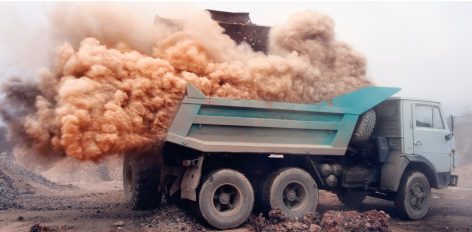Mine companies in New South Wales who dump waste into waterways or fail to control dust levels will now be hit with massive new fines under new penalties for breaches of state planning laws.
Minister for Planning Pru Goward said the new penalties will now be the toughest in Australia, with a maximum penalty of $5 million for companies and $1 million for individuals.
Ms Goward said the strengthened rules would bring the powers of the Land and Environment Court into line with community expectations.
“Each of these offences undermine the community’s faith in the way planning decisions are made – these changes send a message that we’re serious about making the system fairer,” Ms Goward said.
“For example, when developers fail to properly declare political donations or environmental impact statements can’t be relied upon, the system lets the community down.
“These changes mean political donations can no longer be hidden away in chains of subsidiary companies, and that breaching environmental conditions carries a greater penalty.”
Currently, all offences under the Environmental Planning and Assessment Act carry a maximum penalty of $1.1 million. Fines under the Act have not increased since 1999.
“The community rightly believes the punishment should better fit the crime, and while most businesses are law-abiding corporate citizens, current fines are no longer a strong enough deterrent,” Ms Goward said.
“That’s why the NSW Government will introduce laws to increase the maximum penalty the Land and Environment Court can impose to $5 million.
“We’re talking about a mine that intentionally dumps dirty water into a nearby river system, or a developer building a block of units that doesn’t stick to the fire safety conditions that have been set.
“The Court has been reluctant to impose the maximum penalty, so introducing a tiered system makes clear the Government’s intentions and encourages higher penalties for the worst offences.”
The three tiers of offences are:
Tier 1: Applies to the most serious offences, such as carrying out development without approval or outside of existing approvals, or contravening a development control order, where the offence:
- was committed intentionally; and
- caused, or was likely to cause, significant harm to the environment or the death or serious injury or illness of a person.
Maximum penalty: $5 million for corporations and $1 million for individuals
Tier 2: Applies to tier one offences that were unintentional or did not cause, or were not likely to cause, significant harm to the environment or the death or serious injury of a person. For example, accidentally spilling waste into a stream which was cleaned up quickly, minimising the effect on the environment.
Maximum penalty: $2 million for corporations and $500,000 for individuals
Tier 3: Applies to less serious offences. For example, a mine failing to meet dust and noise monitoring requirements or providing false or misleading information in relation to meeting a condition of approval.
Maximum penalty: $1 million for corporations and $250,000 for individuals.














Add Comment